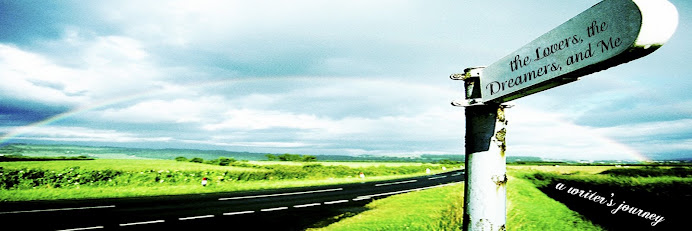It's blog chain time again and Alyson is kicking things off with this question:
So, setting is obviously pretty important. To borrow Stephen King's brilliant writer's toolbox analogy, I would say that setting is a power tool. Now power tools are awesome because, well, because of the whole power thing. They can do a lot quickly and easily. The downside is that if you use them wrong, you can also cut your hand off.
For example if your story is set in New York City, the city can almost be like another character in your novel. OR, if you set your story in NYC, but you've never been there and you're basically using Friends and Sex In The City repeats as your research - that may be less effective.
The biggest setting downfall, though, is when you have done your research or you have lived in New York City all your life and want everyone to see it as crystal clearly as you do - so you write pages and pages and pages of description. Beautiful, poetic... BORING description.
I call this the HANS BRINKER, OR THE SILVER SKATES syndrome.
How important is setting when
crafting a story? How do you choose where your stories take place? How
do you research setting? Do you have to have been somewhere in order to
write about it? What are some memorable settings from books you've read?
So, setting is obviously pretty important. To borrow Stephen King's brilliant writer's toolbox analogy, I would say that setting is a power tool. Now power tools are awesome because, well, because of the whole power thing. They can do a lot quickly and easily. The downside is that if you use them wrong, you can also cut your hand off.
For example if your story is set in New York City, the city can almost be like another character in your novel. OR, if you set your story in NYC, but you've never been there and you're basically using Friends and Sex In The City repeats as your research - that may be less effective.
The biggest setting downfall, though, is when you have done your research or you have lived in New York City all your life and want everyone to see it as crystal clearly as you do - so you write pages and pages and pages of description. Beautiful, poetic... BORING description.
I call this the HANS BRINKER, OR THE SILVER SKATES syndrome.
This is a book I was given when I was a kid and for years it sat on my shelf - unread. For many kids this would probably not be an unheard of scenario, but for me - a child who devoured every book in her path - this was shocking. The thing is I tried to devour this book. Every so often starving for a new book, I would take a little bite of it, and then every time, I would start reading chapter 2 and... the book would become as delicious as sawdust. I'd spit it out and move on to something else.
So what was it about chapter 2 that led to this reaction? Well, Chapter 2 was given the title of "Holland". It begins like this:
Now I think most people would agree that that is some lovely descriptive writing... but by the end of that rather long paragraph don't you feel like, okay, that's nice, but can we have some dialogue now? Alas, this type of description continues for the next EIGHT pages!
I did eventually read Hans Brinker, though. I must have been desperate for new reading material, and finally just skipped chapter 2 and then read the rest of the book, which was actually pretty good.
Of course, setting doesn't have to be the brussels sprouts on your thanksgiving plate - aka something that must be eaten around. And this is because setting - unlike brussels sprouts - can be delicious if handled correctly.
A good example of setting that is integral to a book and enriches it can be found in Maggie Stiefvater's THE SCORPIO RACES. The whole book takes place on an island where every year half-sea monster, half-horse creatures come out of the ocean and are captured by those foolish enough to try and ride them in the Scorpio Races. It is just brilliant and lovely and all the beautiful setting details are sprinkled evenly throughout the book instead of dumped into one big steaming pile and calling it chapter 2.
Okay, so those are my thoughts on the potential perils and rewards of setting. Now go check out what the rest of the blog chain has to say, starting with Sandra tomorrow.


